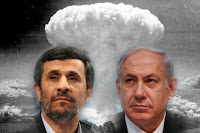This guest blog comes from NAPF Board member Robert Laney.The “Seoul Communiqué,” issued by the United States and other governments attending the 2012 Seoul Nuclear Security Summit this week, begins with the following preamble:
We, the leaders, gathered in Seoul on March 26-27, 2012, renew the political commitments generated from the 2010 Washington Nuclear Security Summit to work toward strengthening nuclear security, reducing the threat of nuclear terrorism, and preventing terrorists, criminals, or other unauthorized actors from acquiring nuclear materials. Nuclear terrorism continues to be one of the most challenging threats to international security. Defeating this threat requires strong national measures and international cooperation given its potential global political, economic, social, and psychological consequences.The purpose of this communiqué is to summarize and reaffirm these various governments’ common understanding of the components of “nuclear security” and their commitment to make progress toward achieving them. Key to their notion of “nuclear security” are the words, “
preventing terrorists, criminals, or other unauthorized actors from acquiring nuclear materials.” In other words, “nuclear security” means ensuring that non-state actors do not acquire nuclear weapons or the means to develop them. What nation-states may do or not do with nuclear weapons is beside the point of this communiqué.
I am all for keeping nuclear weapons and the means to develop them out of the hands of non-state actors. Indeed I believe that a robust international effort to secure weapons-grade materials from the hands of non-state actors is long overdue after years of relative inaction by the previous U. S. administration. In any case, who can be against “preventing terrorists, criminals, or other unauthorized actors from acquiring nuclear materials?”
But I find a peculiar irony in defining “nuclear security” in terms of non-state actors only, without regard for those nation-states which for decades, by maintaining vast nuclear arsenals on hair-trigger alert with a “first strike” option, have implicitly threatened millions upon millions of ordinary men, women, and children with indiscriminate annihilation. Viewed objectively and from a disinterested standpoint, do not those nation-states which in the 21st Century continue to threaten mass, “omnicidal” annihilation also qualify as “terrorists,” “criminals,” and “unauthorized actors,” only more so than do non-state actors because of their potential to put an end to civilization? And if that is so, does not one’s concept of “nuclear security” derive from his particular place, situation, and perspective on the world?






































